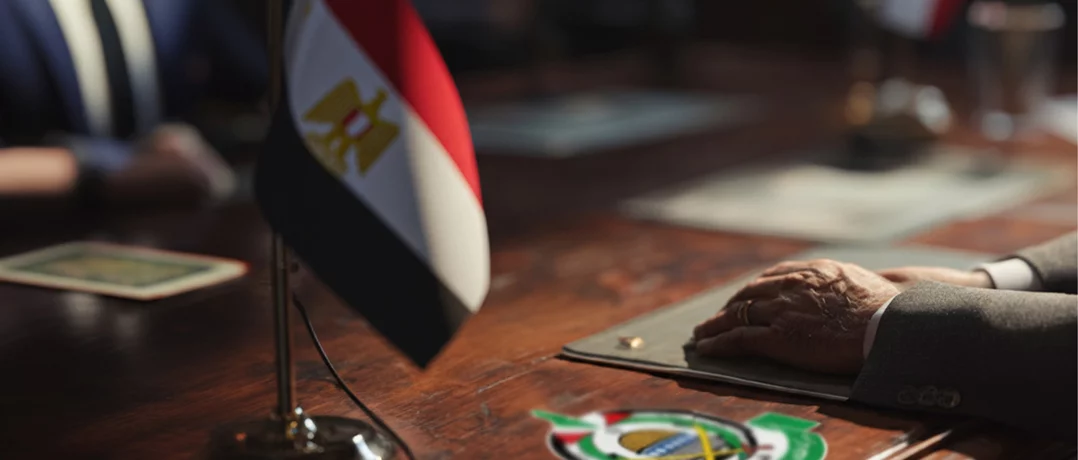Crucial Gaza ceasefire talks begin in Sharm el-Sheikh as Hamas, Israel, and the U.S. negotiate a hostage-prisoner exchange under Trump’s 20-point peace plan.
Egypt hosts pivotal Gaza hostage talks amid ongoing conflict
Egypt hosts pivotal Gaza hostage talks amid ongoing conflict


On Monday, 6 October, 2025, Palestinian Hamas, Israel and the United States are set to hold crucial talks in the infamous Egyptian Red Sea resort town of Sharm el-Sheikh regarding the hostage-prisoner exchange between the contending parties, negotiations are part of President Donald Trump’s 20-point Gaza peace plan, revealed on September 29, to end the ongoing armed conflict in Gaza and free all remaining hostages in the devastated Strip.
High-stakes diplomacy in Sharm el-Sheikh
Hamas’ delegation will be headed by the group’s exiled chief negotiator, Khalil al-Hayya, while Washington has sent two emissaries: Trump’s special envoy Steve Witkoff, along with his son-in-law Jared Kushner. Israel’s delegation will also arrive to Egypt, although its chief negotiator, Strategic Affairs Minister Ron Dermer, is only expected to join later this week, pending developments in the upcoming negotiations, according to three Israeli officials.
In this regard, President Trump issued a statement claiming that “there have been very positive discussions with Hamas”, while simultaneously urging all parties to “MOVE FAST”, as he expects the first phase of the peace plan to be completed this week. This phase is set to discuss the release of the 48 remaining hostages in exchange for an indefinite number of Palestinian prisoners held in Israeli captivity.
Contentious terms and partial acceptance
On October 3rd, Hamas partially accepted some elements of the plan, leaving key and contentious (including disarmament, governance and Israeli troop withdrawals) unaddressed. For instance, Trump’s peace plan calls for a phased Israeli withdrawal to a “security perimeter presence that will remain until Gaza is properly secure from any resurgent terror threat” and the establishment of a “Board of Peace” (headed by himself and includes key international figures such as former U.K. Prime Minister Tony Blair), while Hamas demands a full immediate withdrawal of all Israeli forces and refuses any foreign “occupation” (stressing on exclusive Palestinian governance), which Trump has said that once the hostage-prisoner exchange is complete.
We will create the conditions for the next phase of withdrawal.
Military pressure and political divides
Although Trump welcomed Hamas’s response and asked Tel Aviv to halt its bombardment and military attacks on Gaza, IDF operations persisted, nevertheless. On Sunday alone, the Israeli army killed at least 19 people, according to Palestinian health authorities. Among those targeted were four individuals seeking aid in the south. This prompted U.S. Secretary of State Marco Rubio to urge Israel to stop bombing Gaza, saying that “you can’t release hostages in the middle of strikes.”
Meanwhile, Israeli Prime Minister Benjamin Netanyahu has confirmed in internal discussions that the Israeli army will not start withdrawing from the Gaza Strip before the return of the last hostage, according to Israel's Channel 14. The PM’s stance reflects intense domestic pressure, from both hostage families as well as far-right parties and ministers in his cabinet. The former prioritize the release of hostages, while the latter are driven by security, political, ideological and war considerations. For instance, far-right Finance Minister Bezalel Smotrich and Security Minister Itamar Ben-Gvir have threatened to bring down Netanyahu’s government if the Gaza war ends, as they believe that halting attacks would be a “grave mistake.”
With that being said, the Gaza talks in Egypt will surely reveal the future implementation and compliance with Trumps 20-point peace plan and, thus, the potential end of all hostilities in the Gaza Strip.


